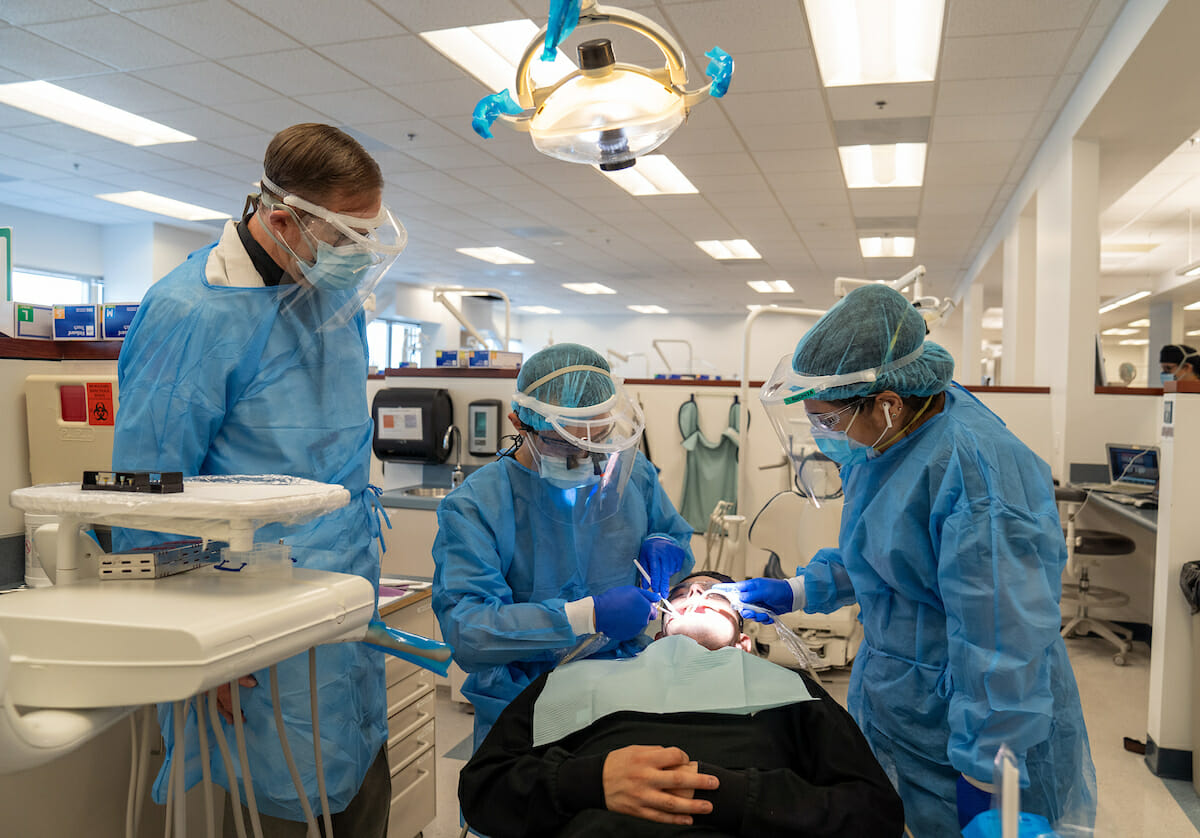
Curriculum
Examine The Curriculum
WesternU’s College of Dental Medicine curriculum and facilities are designed to incorporate innovative ideas and state-of-the-art equipment in a student-centered learning environment.
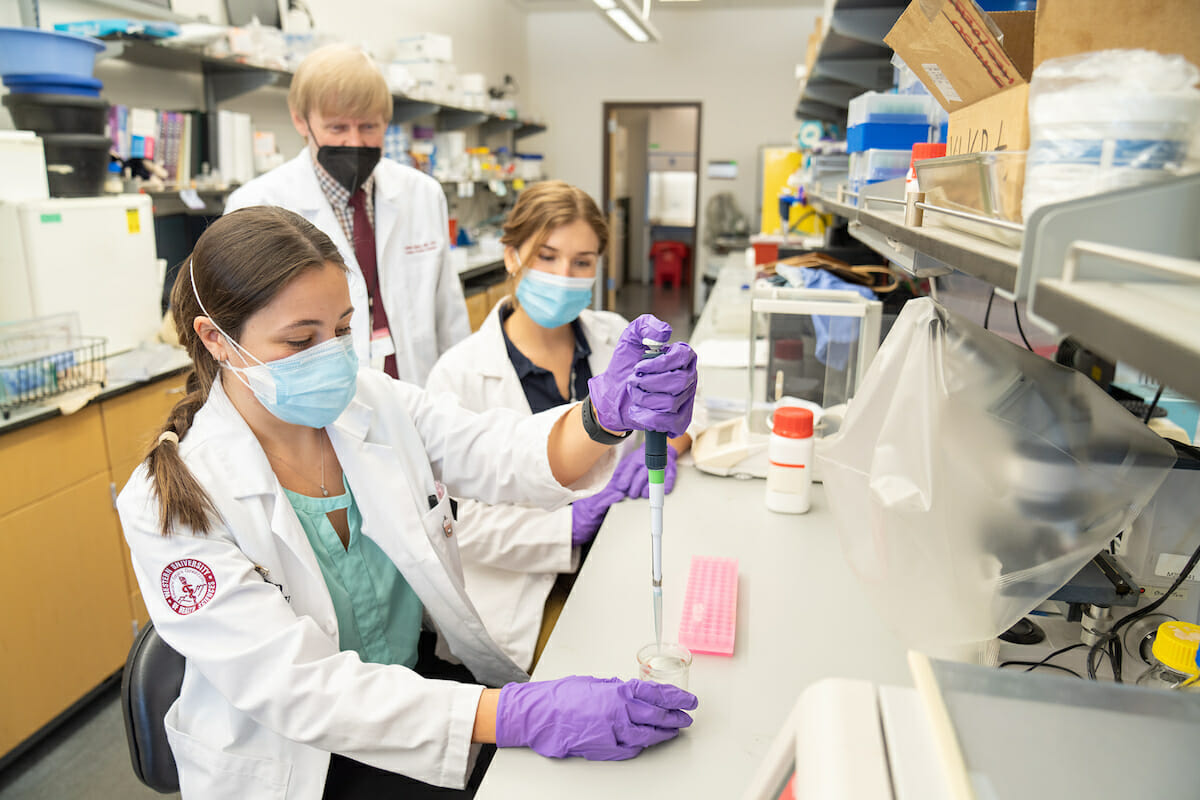
Biomedical Sciences Education
The College of Dental Medicine Biomedical Sciences (BMS) curriculum is designed to prepare dental students in their first and second year to understand and address medical issues in their future dental practices. Our BMS faculty includes PhDs in physiology, biochemistry, anatomy, and neuroscience, as well as MDs, dual degree general dentists, and specialists. The more than fifteen BMS courses include over 100 cases with directed questions reviewed by students and faculty in small and large group settings. BMS faculty also participate later in the curriculum by providing students with medical history reviews for their virtual patients.
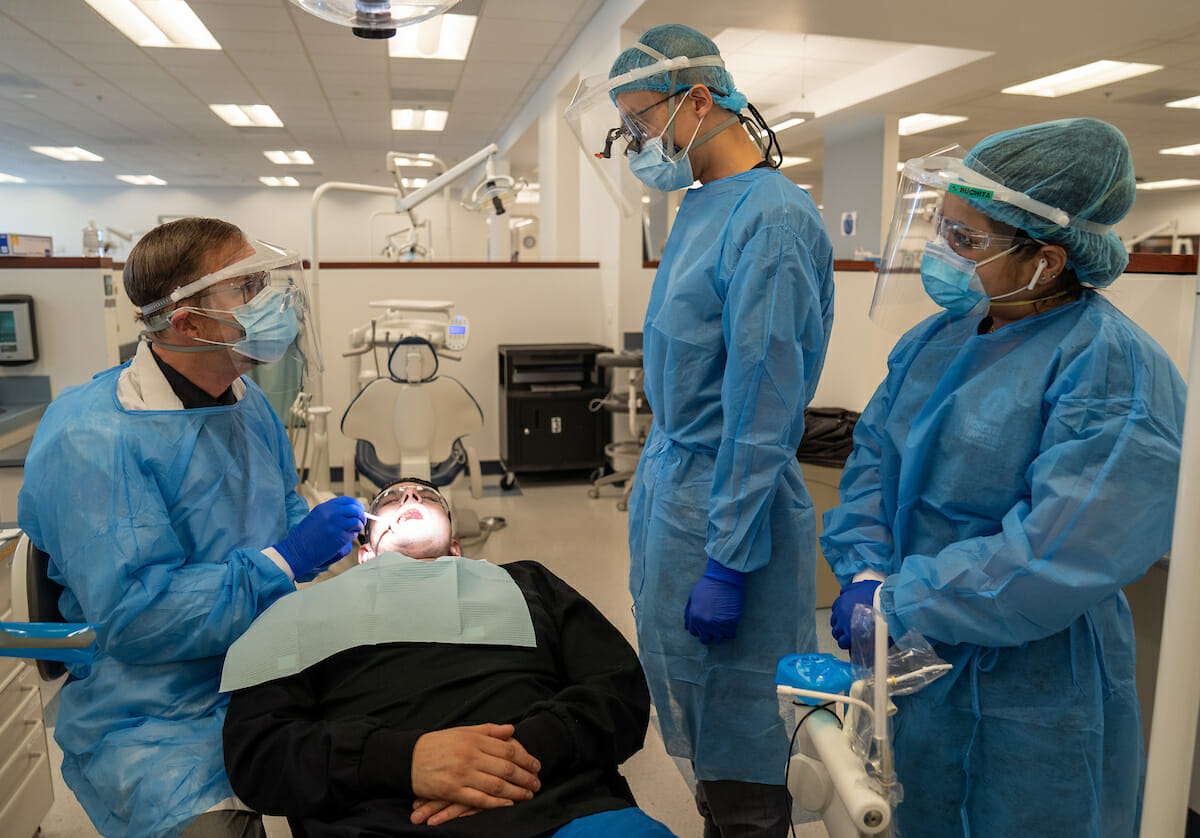
Clinical Education
The College of Dental Medicine Clinical Education strives to provide a clinical learning environment which enables students to demonstrate acquired knowledge, skills, and behavioral attributes necessary to enter the profession as culturally sensitive, competent, caring dentists while providing patient access to care. The Clinical Education is a pedagogically sound learning experience that supports and reinforces professional, ethical behavior. Students participate through a mixture of experiences at the following clinical sites: 1) WesternU Health sites in Pomona and Rancho Mirage, 2) School-Based Oral Health Centers, and 3) affiliated externship sites across the west coast.
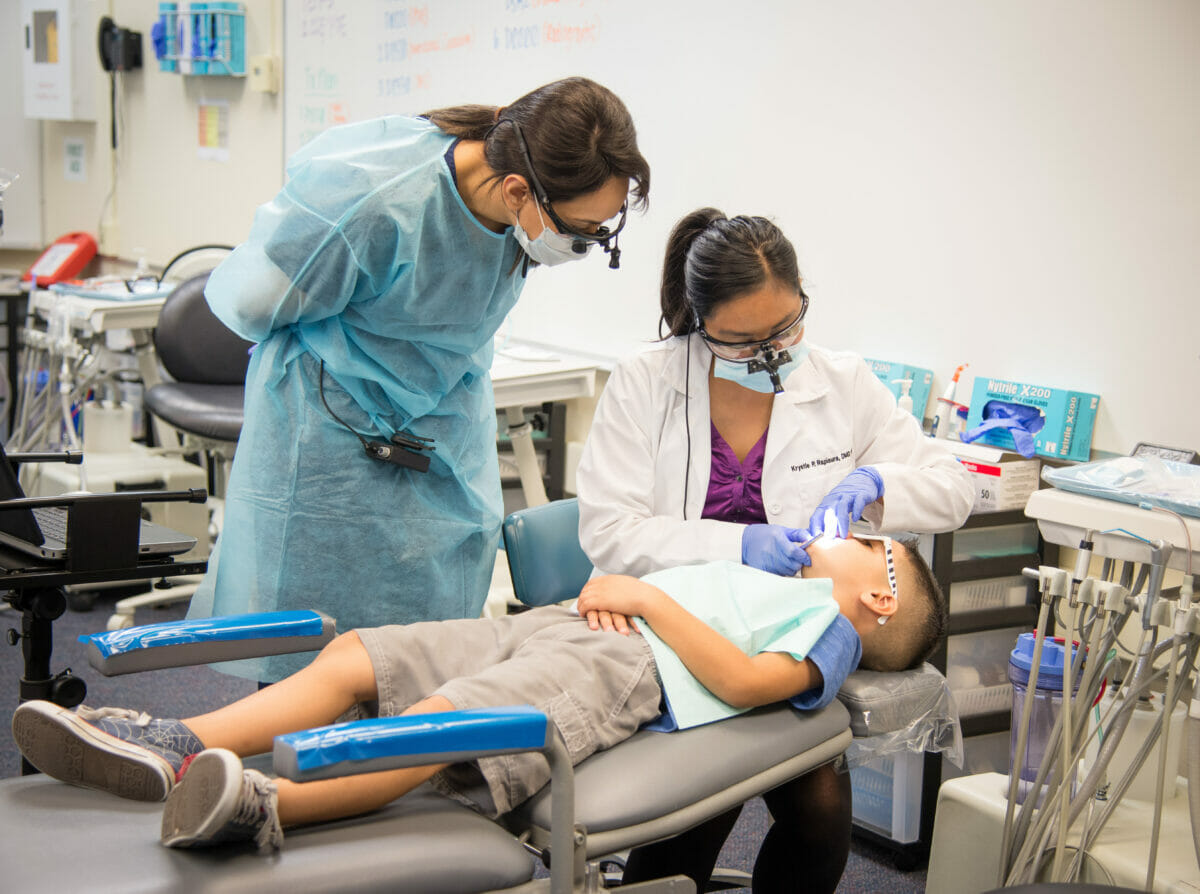
Community-Based Dental Education
Community-Based Dental Education (CBDE) at WUCDM is a comprehensive curriculum spanning all four years of the DMD program. CBDE offers students in-depth and hands-on instruction as students build foundational knowledge in public health, and actively address health inequities within the context of local, regional, and national communities. Students gain confidence and competence through didactic, pre-clinical, and clinical activities, culminating in two seven-week comprehensive externship rotations at Federally Qualified Health Centers, non-profit community clinics, and Indian Health Service sites in the D3 and D4 years, respectively, as the capstone of the student’s experience in CBDE.
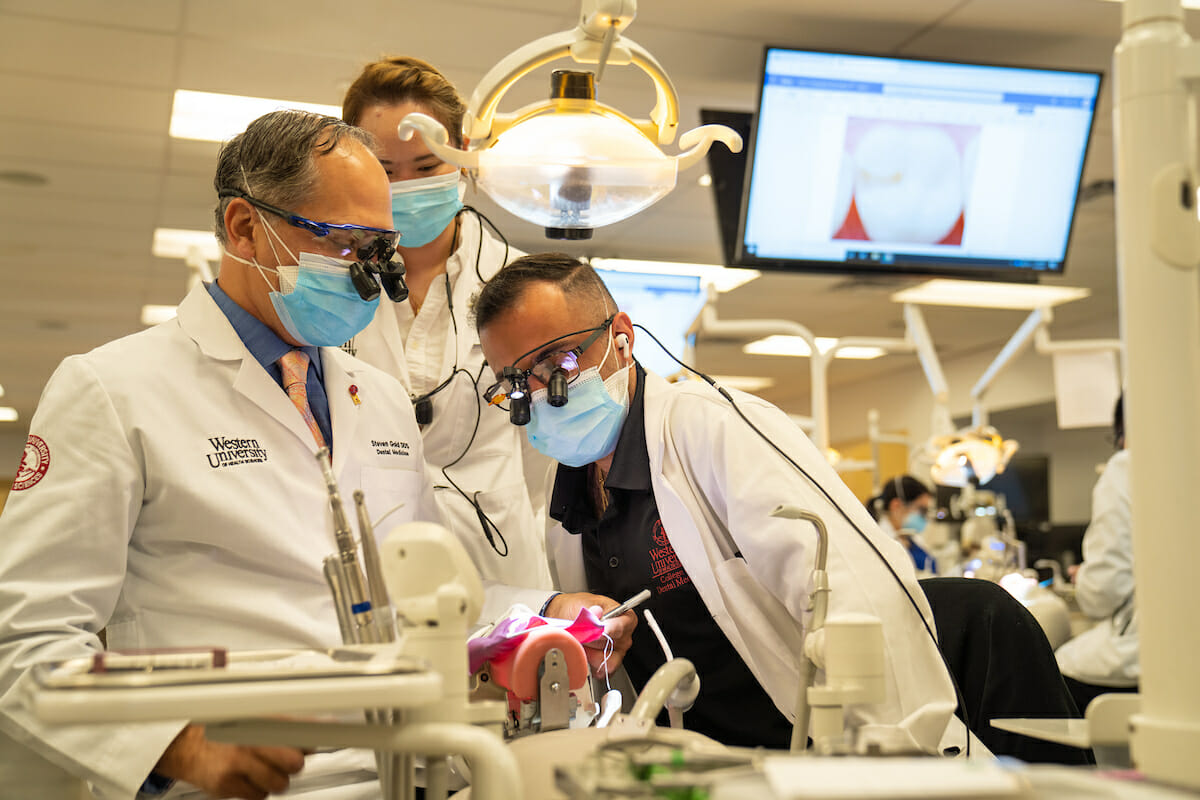
Preclinical Education
The Preclinical program focuses on delivering a hybrid curriculum consisting of didactic dental sciences as well as clinical, technical, and soft skills. The program’s vision is to deliver an integrated multidisciplinary curriculum that is both patient and student centered with cutting-edge technology. This is executed with the following mission: develop dental practitioners who can discriminately acquire, critically appraise and synthesize information, accurately assess, and meaningfully reflect while developing their professional identity and full personal potential. Our guiding mission in developing the preclinical curriculum has consistently aligned with improving the student learning experience, critical thinking skills, independence, and readiness for clinical practice.
The continual development of the preclinical curriculum has followed a multi-pronged approach:
- Hybrid Curriculum consisting of online asynchronous learning in concert with active learning in person sessions.
- Portfolio Evaluation documenting student progress, self-assessment, and reflection.
- Faculty Guided, Peer-to-Peer Small group Learning.
- Virtual Patient Experiences in treat planning seminars as well as simulation clinic treatment sessions.
- Multiple Didactic and Technical Skill Assessment attempts demonstrating competency.
The future goal of the preclinical program is to maximize digital applications and artificial intelligence (AI) in teaching and learning to achieve 100% competency-based education.
- treats students as members of the profession from the first day.
- features a wide variety of educational methodologies, including traditional lecture, seminars, case-based learning, on-line modules, laboratory, clinical simulation, standardized patient exercises, direct patient care and service learning.
- emphasizes principles of clinical medicine by integrating dental students in the study of human systems
- focuses on the links between oral health and overall health and offers interprofessional learning with other health professions
- integrates early direct patient-care experiences to provide contextual relevance for the foundational knowledge and clinical skills you are learning in human systems courses and pre-clinical simulation training
- integrates early service-learning opportunities in community-based locations in the first two years that stresses community assessment, education, and preventive programs
- offers extensive clinical experience in community-based locations
- emphasizes compassionate care, treating the patient as an individual first
- integrates patient and practice management into clinical experiences, building critical skills such as; communication, professional ethics, leadership and business management that are required for successful practice.

